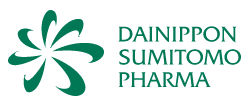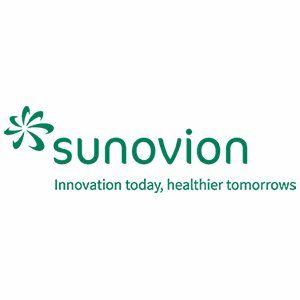Preclinical data demonstrate VIP152 as the most selective CDK9 inhibitor compared with other CDK9 inhibitors, with the most robust MYC mRNA downregulation Clinical data show improved selectivity, target modulation, early signs of clinical efficacy, and cardiac safety in lymphoma patients treated with VIP152 PALO ALTO, Calif., June 10, 2022 (GLOBE NEWSWIRE) -- Vincerx Pharma, Inc. (Nasdaq: VINC), a biopharmaceutical company aspiring to address the unmet medical needs of patients with cancer through paradigm-shifting therapeutics, today announced a poster presentation of preclinical and clinical data on VIP152, the Company’s PTEFb/CDK9 inhibitor, at the European Hematology Association (EHA) 2022 Congress, being held virtually and in Vienna, Austria from June 9-12, 2022. The EHA poster presents data from a high-grade B-cell lymphoma (HGBL) patient with a treatment-related decrease in circulating tumor TP53 mutation and preclinically demonstrates sensitivity of cells derived from chronic lymphocytic leukemia (CLL) patients relapsed after ibrutinib and venetoclax to VIP152 regardless of their TP53 mutation status. “In a pooled analysis of 57 patients with solid or hematologic malignancies, our findings demonstrate that VIP152 did not prolong the QTc interval, which is indicative of a favorable cardiac safety profile and clearly differentiates CDK9 inhibition from the recently reported cardiac toxicity of MCL1 inhibitors,” said Ahmed Hamdy M.D., Chief Executive Officer of Vincerx. “Compared with other CDK9 inhibitors, VIP152 was the most selective CDK9 inhibitor and had the most robust MYC mRNA downregulation. We believe the high selectivity of VIP152 affords a manageable safety profile, based on the overall patient safety data we shared earlier this week. Additionally, our data showed reproducible reductions in MYC, MCL1, and PCNA mRNA in the blood of patients with various types of lymphoma after VIP152 treatment. These data support the utility of a selective CDK9 inhibitor for the treatment of patients with hematologic malignancies,” added Dr. Hamdy. The EHA poster also shares new data for 5 lymphoma patients: 3 with HGBL, 1 double expressor diffuse large B-cell lymphoma (DLBCL) and 1 CLL patient from 2 ongoing phase 1 trials. The safety, treatment duration, pharmacokinetics (PK), and progressive disease (PD) were pooled with 7 previously reported HGBL patients for a total of 12 lymphoma patients shown in the presentation. “Two patients with double-hit DLBCL achieved complete remission for 3.5 and 2.5 years and have remained in remission nearly two years after stopping therapy. In addition, the first patient with CLL—who had failed BTK inhibitors and venetoclax—to be treated with a low dose (15 mg) of VIP152 showed initial evidence of clinical activity by physical exam and laboratory parameters,” added Dr. Hamdy. “VIP152 also showed a favorable safety profile in lymphoma patients, with manageable neutropenia. The once-weekly VIP152 dosing regimen continues to allow for recovery of neutrophils before the next dose. The results presented at EHA, combined with the totality of preclinical and clinical data generated in our programs to date, support our recent strategic decision to prioritize our VIP152 clinical program on double-hit DLBCL and CLL. We continue to be excited about VIP152 and look forward to advancing our development program with the goal of delivering new treatment options for these patients.” Key Presentation Highlights: Poster presentation, titled, “VIP152 is a novel CDK9 inhibitor with improved selectivity, target modulation, and cardiac safety in patients with lymphoma,” presented by Melanie Frigault, Ph.D., Vice President of Translational Medicine, Vincerx, include: A KINOMEscan™ assay revealed a range of ‘hits’ with VIP152 compared with other CDK9 inhibitors (fadraciclib, alvocidib, KB-0742, and AZD4573). In depth evaluation of all potential hits was performed by Kd determination. Kd values showed VIP152 as the most selective CDK9 inhibitor in the clinic today. In the presence of low ATP, VIP152 has an IC50 value of 4.5 nM, and low nanomolar potency was also maintained in the presence of high ATP. The VIP152 IC50 of 4.5 nM was maintained for 15 to 20 hours in the plasma of patients treated at the current clinical dose of 30 mg. Therefore, VIP152 is a highly potent inhibitor of CDK9 kinase activity even in the presence of high ATP concentrations. These data show that physiologically relevant levels of VIP152 are achieved in patients with the 30-mg dose.In vitro VIP152 treatment led to the most robust downregulation of MYC mRNA expression, observed by a downregulation of 85% genes in two DLBCL cell lines, SU-DHL-4 and SU-DHL-10, compared with atuveciclib (76%) and KB-0742 (68%).Pooled cardiac safety data from 57 patients demonstrated that VIP152 does not prolong QTc interval after single or multiple doses (5-30 mg).VIP152 cytotoxicity was evaluated in CRISPR/Cas9 edited CLL cells with homozygous TP53 mutations and showed that wild type and TP53 mutant cell lines were sensitive to VIP152 treatment at 0.5 and 1.0 µM. In vitro treatment of CLL patient-derived cells showed a concentration-dependent reduction in cell viability regardless of number of lines of prior therapy including cells from patients who had relapsed or were refractory to ibrutinib or venetoclax therapy.This presentation includes new data from five patients (n=3 with HGBL, n=1 double-hit DLBCL, and n=1 CLL). The safety, treatment duration, pharmacokinetics (PK), and progressive disease (PD) were pooled with 7 previously reported HGBL patients for a total of 12 lymphoma patients shown in the presentation. Duration of treatment for this cohort ranges from 2 weeks to over 3 years. Of the 12 total treated patients, five were evaluable for best overall response. Of these, two patients with double-hit DLBCL achieved complete remission and remain in remission nearly two years after stopping therapy, while others stopped treatment due to clinical or radiographic progression; and, in one case due to investigator decision.The absolute neutrophil count was measured at each treatment visit. Our data show that once weekly dosing of VIP152 allows for the recovery of neutrophils before the next dose. Neutropenia was considered monitorable and manageable with supportive care.Blood-based PD effect showed a robust down-modulation of MYC, MCL1 and PCNA mRNA in all 11 patients analyzed. Circulating tumor DNA (ctDNA) changes were monitored in three newly reported patients. In one patient, ctDNA reduction in TP53 mutation, and in CDK6 and MYC copy number was observed after three weeks of VIP152 treatment. ctDNA is currently being investigated as a non-invasive tool to aid with predicting outcomes to treatment in patients with high-risk B-cell lymphoma (Meriranta Blood 2022). Clinical evaluation of VIP152 is currently ongoing in two phase 1 trials in patients with solid tumors or aggressive NHL (NCT02635672), and with CLL and Richter Syndrome (NCT04978779). The poster can be accessed on the presentations section of the Vincerx website. ABOUT VINCERX PHARMA, INC.Vincerx Pharma, Inc. (Vincerx) is a clinical-stage life sciences company focused on leveraging its extensive development and oncology expertise to advance new therapies intended to address unmet medical needs for the treatment of cancer. Vincerx has assembled a management team of biopharmaceutical experts with extensive experience in building and operating organizations that develop and deliver innovative medicines to patients. Vincerx’s current pipeline derives from an exclusive license agreement with Bayer and includes a clinical-stage and follow-on small molecule drug program and a preclinical stage modular bioconjugation platform, which includes next-generation antibody-drug conjugates and innovative small molecule drug conjugates. For more information, please visit www.vincerx.com. CAUTIONARY STATEMENTThis press release contains forward-looking statements within the meaning of Section 27A of the Securities Act of 1933, as amended (the “Securities Act”), and Section 21E of the Securities Exchange Act of 1934, as amended, that are intended to be covered by the “safe harbor” created by those sections. Forward-looking statements, which are based on certain assumptions and describe future plans, strategies, expectations and events, can generally be identified by the use of forward-looking terms such as “believe,” “expect,” “may,” “will,” “should,” “would,” “could,” “suggest,” “seek,” “intend,” “plan,” “goal,” “potential,” “on-target,” “on track,” “project,” “estimate,” “anticipate” or other comparable terms. All statements other than statements of historical facts included in this press release are forward-looking statements. Forward-looking statements include, but are not limited to: Vincerx’s business model, pipeline, strategy, timeline, product candidates and attributes and preclinical and clinical development and results. Forward-looking statements are neither historical facts nor assurances of future performance or events. Instead, they are based only on current beliefs, expectations and assumptions regarding future business developments, future plans and strategies, projections, anticipated events and trends, the economy and other future conditions. Forward-looking statements are subject to inherent uncertainties, risks and changes in circumstances that are difficult to predict and many of which are outside of our control. Actual results, conditions and events may differ materially from those indicated in the forward-looking statements. Therefore, you should not rely on any of these forward-looking statements. Important factors that could cause actual results, conditions and events to differ materially from those indicated in the forward-looking statements include, but are not limited to: general economic, financial, legal, political and business conditions and changes in domestic and foreign markets; the potential effects of the COVID-19 pandemic; risks associated with preclinical or clinical development and trials, including those conducted prior to Vincerx’s in-licensing; failure to realize the benefits of Vincerx’s license agreement with Bayer; risks related to the rollout of Vincerx’s business and the timing of expected business milestones; changes in the assumptions underlying Vincerx’s expectations regarding its future business or business model; Vincerx’s ability to develop and commercialize product candidates; Vincerx’s capital requirements and availability and uses of capital; the effects of competition on Vincerx’s future business; and the risks and uncertainties set forth in Forms 10-K, 10-Q and 8-K most recently filed with or furnished to the SEC by Vincerx. Forward-looking statements speak only as of the date hereof, and Vincerx disclaims any obligation to update any forward-looking statements. CONTACTSBruce MackleLifeSci Advisors, LLC646-889-1200bmackle@lifesciadvisors.com











